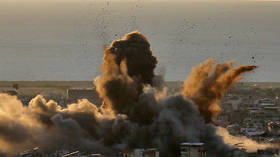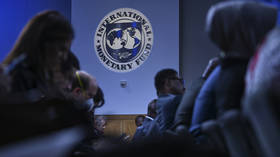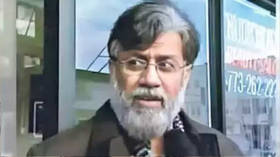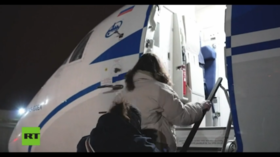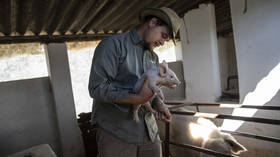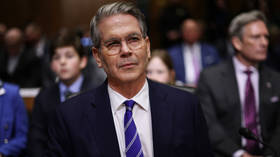Hezbollah claims responsibility for drone attack on Netanyahu’s home
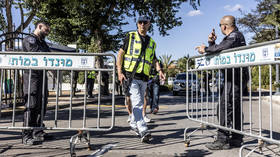
Lebanese paramilitary group Hezbollah has taken “complete and exclusive responsibility” for attacking Israeli Prime Minister Benjamin Netanyahu’s residence with an explosives-laden drone.
Three UAVs were spotted flying toward the coastal town of Caesarea in northern Israel on Saturday. Two were shot down by the Israel Defense Forces (IDF), while a third reached Netanyahu’s residence and detonated its payload. The prime minister and his wife were not at home during the attack.
In a statement on Tuesday, Hezbollah spokesman Mohammad Afif said that the group “declares its full, complete and exclusive responsibility for the Caesarea operation.”
Afif said that Hezbollah would not negotiate with Israel as long as the IDF’s war in Gaza and Lebanon continues, and warned Netanyahu to expect more attempts on his life.
“If we did not reach you this time, then we will reach you the next time,” Afif declared.
Afif’s use of the words “exclusive responsibility” has been perceived as an attempt to distance Iran from the attack. Tehran – which Israel and its allies maintain provides financial and political support to Hezbollah – has already declared that “the action in question was carried out by Hezbollah in Lebanon.”
Shortly after the attack, Netanyahu vowed that “Iran and its proxies” will “pay a heavy price” for targeting his home. The leader has already promised to avenge an Iranian ballistic missile strike on Israeli military targets earlier this month, and according to ABC News signed off on a list of Iranian targets last week.
Leaked US intelligence reports suggest that the IDF has been readying air-launched ballistic missiles and practicing mid-air refueling in preparation for the assault.
Earlier this week, the Washington Post reported that Netanyahu had promised US President Joe Biden that Israel would only strike Iranian military targets in its response, after Biden urged the Israeli leader to refrain from striking Tehran’s oil or nuclear infrastructure.
Israeli forces waged a low-intensity operation against Hezbollah fighters along the Israel-Lebanon border until September, when the apparent Israeli sabotage of thousands of Hezbollah communication devices signaled the start of a major air campaign in Lebanon. A ground invasion followed shortly afterwards, and the death toll in Lebanon currently stands at over 2,400 people, according to the country’s Health Ministry.
The IDF claims to have killed more than 1,500 Hezbollah operatives since the Israel-Hamas war began last year, but the Lebanese militants put the figure closer to 500. The IDF has named 43 soldiers killed in border clashes and ground operations in Lebanon, but Hezbollah maintains that Israel’s true losses are significantly higher.
